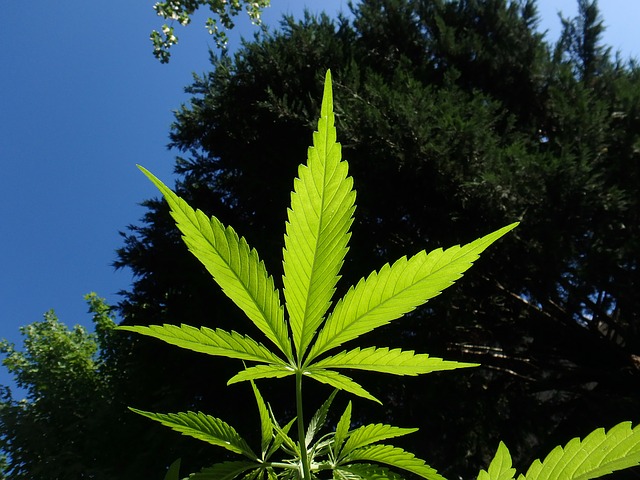If pregnancy leaves you nauseated that even your favorite sandwich makes you feel sick, you’re probably willing to try anything to give your appetite a nudge in the right direction. If you’re stressed about becoming a parent,smoking pot is said to help relieve both these complaints, and it’s now legal in a growing number of states. So is lighting a spliff a safe cure-all for morning sickness and anxiety or a dangerous habit that could potentially harm your baby? Scientific research on the question is limited, but it has found some risks.
What’s the concern?
Some midwives recommend occasional marijuana use during pregnancy to treat morning sickness or decrease anxiety. After all, eating healthy foods to gain weight and staying stress–free are essential to having a healthy pregnancy.
Since the active drug in cannabis, THC, changes a number of processes in the adult body – from heart rate to brain function – it’s reasonable to think that it might affect a growing baby. Some research has shown that when marijuana is used by pregnant women, THC may cross the placenta and enter a fetus’s bloodstream.
Researchers are ultimately unsure of the exact effects of THC on a growing baby. The challenge with many studies on marijuana use is that they rely on questionnaires. If women are worried their answers may not be anonymous, they might deny smoking pot when in fact, they did. Researchers have also repeatedly noted that women who smoke pot during pregnancy often also smoke cigarettes. This complicated the statistics, since any negative effects on their children could be cause by tobacco and not marijuana use.
Hardly any evidence of birth defects
A study in 2014 that examined for than 20,000 U.S. birth records from 1997 through 2005 found that the odds of a baby being born with anencephaly, a type of neural tube defect that causes serious brain malformation, were almost doubled among babies born to mothers who reported smoking marijuana. However, many other studies, including one that analyzed more than 12,000 U.S birth records in the 1980s, have found no statistical link between pot smoking and any birth defects. In general, health care practitioners agree that marijuana doesn’t directly cause physical birth defects.
Some studies have shown more conclusively that daily or weekly marijuana use may make your pregnancy more high-risk. For example, a 2011 Australian study of almost 25,000 women concluded that babies born to mothers who used marijuana were twice as likely to end up in the neonatal intensive care unit (NICU) compared to other babies. And a review of 24 studies looking at marijuana use during pregnancy found that pot use during pregnancy makes baby 77 percent more likely to be underweight at birth.
What about long-term effects? A few studies have found that after 3 years of age, children born to marijuana-smoking mothers score slightly differently on cognitive and behavioral tests compared with other babies. A decade-long Canadian study found that at 4 years old, children born to mothers who used marijuana on a daily basis during pregnancy scored lower on memory tests, though there was no impact on overall intelligence scores. At age 10, kids had a slightly increased risk of hyperactivity, inattention and impulsivity.
Scientists who have turned to mice to understand the effects of THC on development showed in early 2014 that developing mice exposed to THC had altered connections between cells in their brain. They think this could explain why exposure to THC during pregnancy can leave children with lasting cognitive and memory changes.
what all of this means for you:
Is it okay to use marijuana during pregnancy? Like many decisions, it comes down to weighing the pros and cons. While it doesn’t appear that marijuana causes birth defects, there may be a chance it could make you go into labor early or possible even affect your child’s brain development. The reality is, it’s virtually impossible to design a reliable study to test the effects of marijuana during pregnancy, simply because a normal person won’t play with a baby’s life like that. We might never have definitive research pinpointing any short- or long-term effects of prenatal pot use on fetal development.
For these reasons, in 2015 the American Congress of Obstetricians and Gynecologists released a new policy statement urging pregnant and breastfeeding women to avoid using marijuana. All of which means to be on the safe side, you’re best avoiding pot while you’re expecting.
If you’re looking for alternate ways to treat morning sickness, ask your health care provider for suggestions — there are natural remedies safer than marijuana and FDA-approved drugs. Depending on the nature of your anxiety, your doctor can recommend a combination of therapy and, if necessary, medication that’s safe for you and your baby.
If you do use marijuana during pregnancy, make sure you still visit the doctor regularly. Never skip appointments because you’re worried about revealing your drug use; your doctor should be your partner in ensuring your baby’s health. Getting proper prenatal care — which also means being honest with your practitioner about how often you use — is the best way to ensure your baby gets the best start to life possible.



